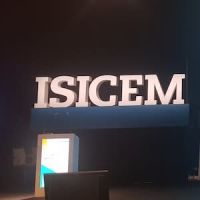Critically ill patients are fed with amounts below the recommendations of international guidelines. To overcome large energy deficits, supplemental parenteral nutrition (SPN) to top up enteral nutrition (EN) has been proposed. This strategy is included in both the American (ASPEN) and European (ESPEN) clinical nutrition guidelines.
SPN has demonstrated clinical benefits and is included in the American and European guidelines. However, its use is heterogeneous across European countries. According to the EuroPN study, SPN was used in only 10% of nutrition days, starting around day 4.
A group of International physicians involved in medical nutrition therapy of adult critically ill patients discussed SPN with oral or EN in the ICU and identified potential barriers to its prescription, available evidence, and criteria to identify patients who might benefit from its use. They hypothesised that the optimal use of SPN would result in improved clinical outcomes.
Barriers to SPN use vary across ICUs and include limited evidence on SPN benefits, unavailability of protocols for therapy initiation, lack of ownership of nutrition care plan, absence of qualified dieticians, insufficient time and/or understanding of techniques, unavailability of ready-to-use formulations, concerns about infection risk, cost, and staff workload, unavailability of trained prescribers on weekends/holidays, inability to accurately assess energy requirements, uncertainty about the percentage of measured resting energy and lack of understanding regarding cumulative energy deficit.
Concerning evidence for SPN, several gaps were identified, including uncertainty about the appropriate date to initiate SPN, excursion of patients with several illnesses or pre-existing conditions, the effect of endogenous energy production on nutrition requirements and the inability to define outcomes attributable to SPN use.
The group of experts highlighted the need to include functional outcomes in trials. But cost, data availability, and data reliability were identified as barriers to collecting functional outcome data. They also suggested using IC as a metabolic monitor and glucose monitoring to reassure clinicians who may be concerned about overfeeding while initiating SPN.
Overall, the discussion reveals the underutilisation of SPN and the need for more evidence to support its use. The group proposed a three-pronged call to action. First, to design clinical trials with outcomes focused on the right dosing and SPN timing; second, to increase education and awareness of the importance of optimal medical nutrition therapy, and third to use clinical protocols that translate guidelines into clinical practice.
Source: Critical Care
Image Credit: iStock
References:
Berger MM, Burgos R, Casaer MP et al. (2022) Clinical nutrition issues in 2022: What is missing to trust supplemental parenteral nutrition (SPN) in ICU patients? Crit Care. 26, 271.
Latest Articles
enteral nutrition, supplemental parental nutrition, medical nutrition therapy, SPN, EN
Clinical Nutrition Issues in 2022

























